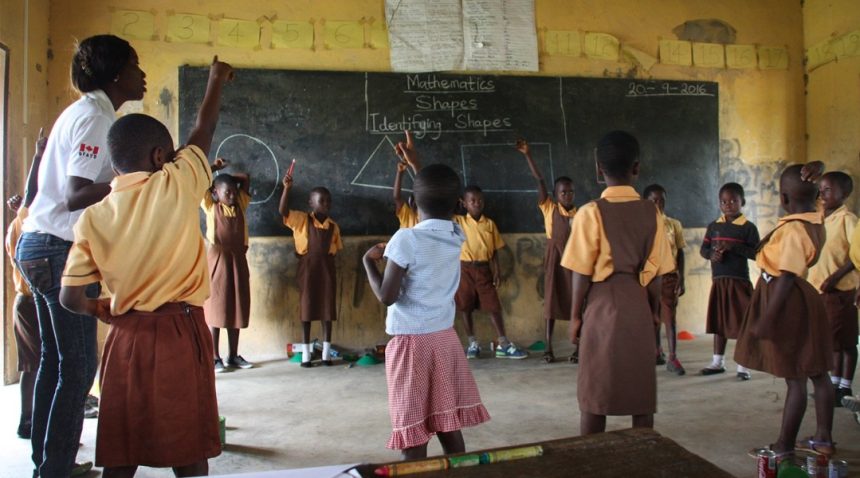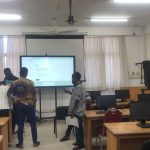Education Specialist with Right to play Ghana, Kwabena Gao has asked the government to implement Play Based Learning in the curriculum of Basic schools in the country.
This he says will support learners to feel free to participate in teaching and learning in the classroom.
Kwabena Gao spoke at the one-day training workshop organized in Accra for some selected journalists and Public Relations Officers (PROs) on effective reportage on the work of Right to Play (RTP) in Ghana and play-based learning methodology (PBLM).
In an interview with Univers News, Kwabena Gao debunked claims of Play Based Learning being a waste of time for children.
Play-based learning is not a waste of time, it is an approach that will support learners to feel free in the classroom. Remember for you to see a playful learning in the classroom, we have certain characteristics that need to be there. Joyful, is it joyful because they have to be happy to be in the classroom?
No, they are happy because they are learning the concept the Teacher is introducing to them.
It needs to be meaningful, meaningful because it is meeting the needs, interest and ability of the learners.
And it needs to be actuated after the activity learners will go back to their homes gather their siblings who were not part of the lesson and you’ll see them practicing some of the things they learnt in the classroom. And of course, it also helps them to be socially interactive using group work, using brainstorming, using think-per-share approaches, all these builds life skills in them, they would be able to cooperate to develop their confidence, to develop their effectiveness and these are something we want to look at.
Because we have the dream Ghanaian child who needs to be a team player, a collaborator, a communicator and global citizen. So, play- based learning has a place in adding value to the wholistic development of the learners in our Ghanaian classroom.” He stated
He however stated that some measures have been put in place to train teachers in Colleges of Education on Play Based Learning.
The teachers cannot be effective when we don’t have a step-by-step guide to support them deliver the curriculum that has been ruled out in 2019. And so, we are working with NaCCA to develop a play-base guides which include STEM, MTC on national approaching and Mentoring frame work, on KG frame work to support this and,
again, other minded organization.
We are coming up with a trainer manual on KG that we use to train the KG teachers across the country and which will also be used as reference material to train our KG teachers from the University and College of Education so that by the time they are out of the colleges and they are in school, they will be able to really deliver play-based approach and this we believe is an added value that we are bringing to support the Ministry of Education in improving the quality of Education.
Meanwhile, some participants called on the government to support the vision of Right to Play Ghana to improve the quality of Education in the country.
So far, I’ve learnt one and two things out of it even though I’m not a teacher, as a journalist and a parent as well, I can use it to teach my kids when we are in the house. So, therefore, this training has really enhanced me and it has really help me to learn new methods when it comes to kids learning. It should not always be sit down read but then we should add play whenever we are teaching or whenever we want them to do something especially the KG’s. So, I’ve really learnt a lot from this conference today.” Some mentioned.
A play-based approach involves both child-initiated and teacher-supported learning. The teacher encourages children’s learning and inquiry through interactions that aim to stretch their thinking to higher levels.
For more than 20 years, Right To Play has worked in some of the most difficult and dangerous places on earth to help children to stay in school and graduate, resist exploitation and overcome prejudice, keep themselves safe from disease, and heal from the harsh realities of war and abuse.




